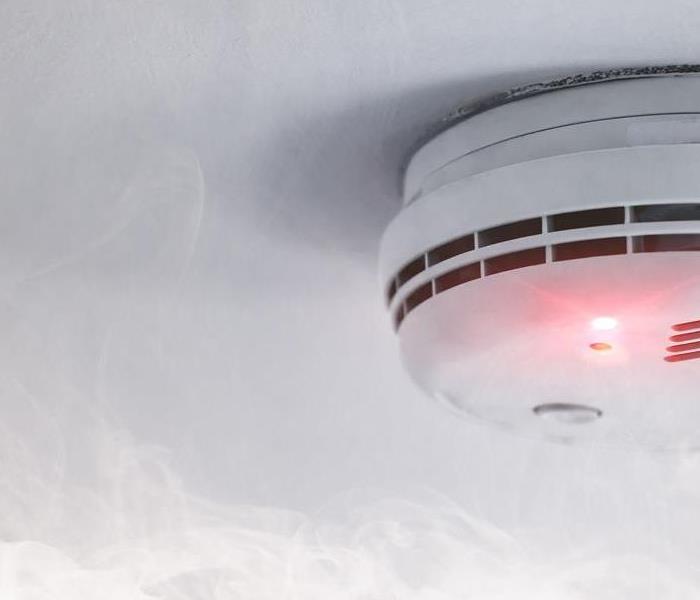Stay Safe: How Many Smoke Alarms Do You Need in Your Home?
4/29/2023 (Permalink)
Smoke alarms are essential safety devices that can provide early warning of a fire in your home. According to the National Fire Protection Association (NFPA), having working smoke alarms in your home can reduce the risk of dying in a fire by as much as 50%. However, one smoke alarm may not be enough to adequately protect your family and home. So, how many smoke alarms should you have in your home?
Smoke Alarm Installation
The NFPA recommends that every home should have smoke alarms installed in every sleeping room, outside each separate sleeping area, and on every level of the home, including the basement. This means that if you have a two-story home with three bedrooms and a basement, you should have a minimum of five smoke alarms installed.
It's important to note that smoke alarms should be installed in the right places. You should install smoke alarms on the ceiling or high on a wall because smoke rises. You should also avoid placing smoke alarms near windows, doors, or ducts where drafts could interfere with their operation. Additionally, smoke alarms should not be installed in kitchens or bathrooms where steam and cooking fumes could trigger false alarms.
Test Alarms
It's also important to test your smoke alarms regularly to ensure that they are working properly. The NFPA recommends testing your smoke alarms at least once a month by pressing the test button on the alarm. If your smoke alarms are battery-operated, you should replace the batteries at least once a year, and if they are more than ten years old, you should replace the entire unit.
If you have a larger home, you may need additional smoke alarms to ensure that every area of your home is covered. For example, if you have a large living room or family room, you may want to install an additional smoke alarm in that area. If you have a garage or workshop, you should also install a smoke alarm in that area.
Consider Carbon Monoxide Alarms
In addition to smoke alarms, you may also want to consider installing carbon monoxide (CO) alarms in your home. CO is an odorless and colorless gas that can be deadly, and it's produced by the incomplete burning of fuels such as gas, oil, and wood. CO alarms should be installed on every level of the home and outside each sleeping area, just like smoke alarms.
In conclusion, having smoke alarms in your home is crucial for fire safety, and the NFPA recommends having smoke alarms in every sleeping room, outside each separate sleeping area, and on every level of the home. If you have a larger home or additional areas that may require coverage, you may need to install additional smoke alarms. It's also important to test your smoke alarms regularly and replace them when necessary. And don't forget about carbon monoxide alarms, which can also save lives. By taking these simple steps, you can help protect your family and home from the devastating effects of a fire or carbon monoxide poisoning.

 24/7 Emergency Service
24/7 Emergency Service
